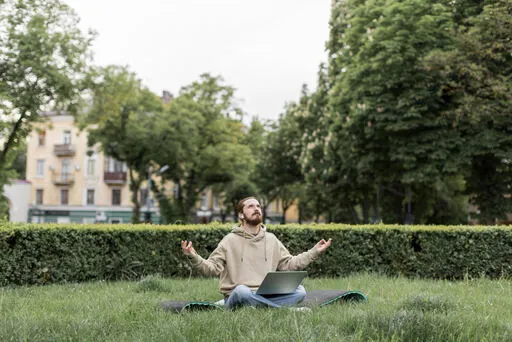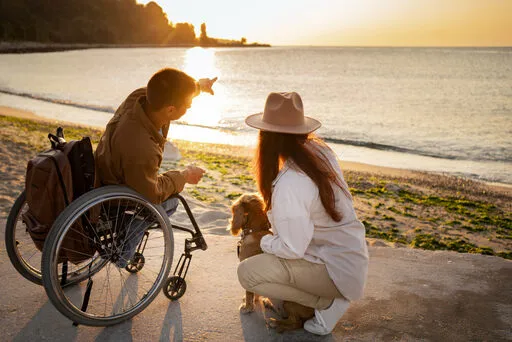Understanding lifestyle is crucial for achieving a balanced and fulfilling life. It encompasses the daily habits, choices, and behaviors that shape our well-being and overall quality of life. From physical health and mental well-being to social interactions, environmental influences, and personal preferences, lifestyle influences every aspect of our lives. This blog explores the various components of lifestyle, offering practical tips and strategies to help you enhance your daily routines, achieve personal goals, and cultivate a healthier and more meaningful lifestyle.
Table of Contents
1. Introduction
- Defining Lifestyle
Lifestyle, as explored on Good to Best, refers to the way individuals live their lives, characterized by their daily activities, habits, and behaviors. It encompasses a broad spectrum of choices and actions that reflect one’s values, attitudes, and personal preferences. Understanding what lifestyle entails is crucial for achieving a balanced and fulfilling life.
- Importance of Lifestyle
A well-balanced lifestyle is essential for physical, mental, and emotional well-being. It influences overall health, happiness, and quality of life. By examining the various components of lifestyle, we can make informed decisions that enhance our everyday experiences.
- Purpose of the Blog
This blog aims to provide a comprehensive understanding of lifestyle and its impact on our lives. By exploring different aspects of lifestyle, we can identify areas for improvement and adopt healthier habits.
2. Components of a Healthy Lifestyle
- Diet and Nutrition
Diet and nutrition play a pivotal role in maintaining a healthy lifestyle. Consuming a balanced diet rich in fruits, vegetables, whole grains, and lean proteins ensures that our bodies receive the essential nutrients needed for optimal functioning. Avoiding processed foods, excessive sugar, and unhealthy fats can prevent chronic diseases and promote longevity.
Fruits and vegetables are packed with essential vitamins, minerals, and antioxidants that support bodily functions and protect against illnesses. Whole grains provide a steady source of energy, while lean proteins help build and repair tissues. Staying hydrated by drinking plenty of water is also crucial for maintaining bodily functions and overall health.
- Exercise and Physical Activity
Regular exercise is a cornerstone of a healthy lifestyle. Engaging in physical activities such as walking, running, cycling, or swimming improves cardiovascular health, strengthens muscles, and enhances flexibility. Exercise also boosts mood and reduces stress, contributing to overall well-being.
Physical activity doesn’t have to be strenuous to be beneficial. Even moderate activities like gardening, dancing, or brisk walking can have significant health benefits. Incorporating a mix of aerobic exercises, strength training, and flexibility exercises can provide a well-rounded fitness regimen.
- Sleep and Rest
Adequate sleep is essential for physical and mental health. Quality sleep helps repair and rejuvenate the body, supports cognitive functions, and regulates mood. Establishing a consistent sleep routine and creating a restful environment can significantly improve sleep quality and overall lifestyle.
Creating a sleep-friendly environment involves reducing noise and light, maintaining a comfortable temperature, and having a supportive mattress and pillows. Limiting screen time before bed and avoiding caffeine and heavy meals in the evening can also promote better sleep.
3. Mental Health
- Stress Management
Managing stress is crucial for a balanced lifestyle. Chronic stress can lead to various health issues, including anxiety, depression, and cardiovascular diseases. Incorporating stress-reduction techniques such as mindfulness, meditation, and yoga can promote mental clarity and emotional stability.
Mindfulness practices, such as deep breathing exercises and progressive muscle relaxation, help focus the mind and reduce stress. Regular meditation can improve emotional resilience and overall mental health. Yoga combines physical movement with breath control, promoting relaxation and mental well-being.
- Hobbies and Interests
Engaging in hobbies and interests provides a sense of purpose and fulfillment. Activities such as reading, painting, gardening, or playing musical instruments can enhance creativity, improve cognitive skills, and offer a healthy escape from daily stressors.
Hobbies offer a break from the routine and provide opportunities for self-expression and personal growth. They can also foster social connections when shared with others, further enriching one’s lifestyle.
- Mental Well-being
Maintaining mental well-being involves nurturing positive relationships, seeking support when needed, and practicing self-care. Developing resilience and a positive outlook on life can improve overall lifestyle and help navigate challenges effectively.
Building a support network of family, friends, or mental health professionals can provide emotional support during difficult times. Practicing gratitude, setting realistic goals, and engaging in regular self-reflection can also enhance mental well-being.
4. Social Interactions
- Family Relationships
Strong family bonds contribute to a supportive and nurturing lifestyle. Spending quality time with family members, communicating openly, and participating in family activities can foster a sense of belonging and emotional security.
Family traditions, shared meals, and collaborative projects strengthen family ties. Open and honest communication helps resolve conflicts and build trust, creating a supportive family environment.
- Friendships and Social Connections
Building and maintaining friendships is vital for a fulfilling lifestyle. Social connections provide emotional support, reduce feelings of loneliness, and enhance overall happiness. Engaging in social activities, joining clubs, or volunteering can help expand social networks.
Participating in group activities or community events can introduce new friendships and enrich social life. Maintaining regular contact with friends through calls, texts, or social media helps sustain connections and support networks.

- Community Involvement
Being involved in the community adds a sense of purpose and connection to one’s lifestyle. Participating in community events, supporting local initiatives, and volunteering can create a positive impact and foster a sense of belonging.
Community involvement can include activities like participating in neighborhood cleanups, attending local festivals, or supporting community projects. Volunteering offers opportunities to give back and make a difference, enhancing personal fulfillment and community well-being.
5. Work and Leisure
- Work-Life Balance
Achieving a work-life balance is essential for a healthy lifestyle. Balancing professional responsibilities with personal interests and family time prevents burnout and enhances overall satisfaction. Setting boundaries and prioritizing tasks can help maintain this balance.
Effective time management and delegation of tasks can prevent work from overwhelming personal life. Taking regular breaks and using vacation time to rest and recharge are important for maintaining productivity and well-being.
- Hobbies and Recreation
Engaging in recreational activities and hobbies outside of work is crucial for relaxation and rejuvenation. Activities such as hiking, travelling, or playing sports can provide a break from routine, boost energy levels, and improve mental well-being.
Outdoor activities offer opportunities to connect with nature and improve physical fitness. Indoor hobbies like cooking, crafting, or playing board games provide enjoyable ways to unwind and spend quality time with loved ones.
- Leisure and Entertainment
Leisure activities and entertainment, such as watching movies, attending concerts, or exploring new places, add enjoyment to life. Incorporating leisure time into the routine can reduce stress and contribute to a well-rounded lifestyle.
Experiencing different forms of entertainment and exploring new hobbies can provide excitement and variety, enriching everyday life. Planning leisure activities in advance ensures that they become a regular part of the routine.
6. Environmental Factors
- Living Conditions
Living conditions significantly impact lifestyle. A clean, organized, and comfortable living environment promotes physical health and mental well-being. Creating a space that reflects personal style and meets functional needs can enhance daily living experiences.
Decluttering and organizing living spaces can reduce stress and create a more peaceful environment. Adding personal touches like plants, artwork, or comfortable furnishings can make the home more inviting and enjoyable.
- Geographic Location
Geographic location influences lifestyle choices and opportunities. Access to natural surroundings, recreational facilities, and cultural activities can enrich life. Urban, suburban, or rural settings each offer unique advantages and challenges that shape lifestyle.
Living in an area with access to parks, beaches, or mountains encourages outdoor activities and physical fitness. Urban areas may offer more cultural events and dining options, while rural settings provide peace and a connection to nature.
- Access to Resources
Access to resources such as healthcare, education, and transportation plays a vital role in determining lifestyle quality. Ensuring that basic needs are met and utilizing available resources can improve overall lifestyle and well-being.
Proximity to healthcare facilities ensures timely medical care, while access to quality education enhances personal growth and career opportunities. Reliable transportation allows for greater mobility and access to essential services and activities.
7. Cultural and Religious Practices
- Traditions and Rituals
Cultural traditions and rituals are integral to lifestyle, providing a sense of identity and continuity. Celebrating cultural festivals, participating in traditional ceremonies, and practicing customs can enrich life and foster community bonds.
Traditions like holiday celebrations, family rituals, or community festivals create lasting memories and strengthen cultural ties. Participating in these activities connects individuals to their heritage and community.
- Religious Beliefs
Religious beliefs and practices offer spiritual guidance and support, contributing to a meaningful lifestyle. Engaging in religious activities, attending services, and observing religious customs can provide comfort, purpose, and a sense of belonging.
Regular participation in religious services, prayer, or meditation can provide a sense of peace and direction. Religious communities often offer support networks and opportunities for social connection and volunteerism.
- Cultural Diversity
Embracing cultural diversity enhances lifestyle by broadening perspectives and fostering inclusivity. Exposure to different cultures, languages, and traditions enriches personal experiences and promotes a more understanding and compassionate worldview.
Participating in cultural exchange programs, learning new languages, or attending multicultural events can enhance cultural awareness and appreciation. Celebrating diversity in daily life promotes inclusivity and enriches personal experiences.
8. Economic Status
- Financial Stability
Financial stability is a key component of a secure lifestyle. Managing finances effectively, saving for the future, and making informed financial decisions reduce stress and provide a foundation for achieving personal goals and aspirations.
Creating a budget, setting financial goals, and regularly reviewing finances help maintain financial health. Building an emergency fund and planning for retirement ensure long-term security and peace of mind.
- Spending Habits
Spending habits reflect lifestyle choices and priorities. Practicing mindful spending, budgeting, and avoiding unnecessary debt contribute to financial well-being and a balanced lifestyle. Investing in experiences and personal growth can provide lasting fulfillment.
Prioritizing spending on experiences, such as travel or education, can provide long-term benefits and personal enrichment. Avoiding impulsive purchases and focusing on value-driven spending supports financial health and well-being.
- Consumption patterns influence lifestyle sustainability.
Adopting eco-friendly practices, reducing waste, and supporting ethical products contribute to environmental conservation and a healthier lifestyle. Making conscious choices about consumption can positively impact the planet and personal well-being.
Reducing single-use plastics, recycling, and choosing sustainable products help protect the environment. Supporting local and ethical brands promotes responsible consumption and contributes to a more sustainable lifestyle.
9. Enhancing Your Lifestyle: Practical Tips and Strategies
- Short-term Goals
Setting short-term goals is a practical approach to improving your lifestyle. These goals are achievable within a short period, such as a few weeks or months, and provide immediate motivation and satisfaction. Examples include starting a new exercise routine, learning a new skill, or adopting a healthier diet.
Breaking down larger objectives into smaller, manageable tasks can make progress more tangible and less overwhelming. Tracking your achievements helps maintain momentum and build confidence in your ability to reach long-term aspirations.
- Long-term Goals
Long-term goals require sustained effort and commitment over an extended period, often years. These might include pursuing higher education, achieving financial independence, or significantly improving physical health. Long-term goals provide direction and purpose, guiding daily decisions and actions.
Creating a vision board or detailed plan can help keep long-term goals in focus. Regularly reviewing and adjusting these goals ensures they remain relevant and achievable as circumstances change.
10. Building Healthy Habits
- Daily Routines
Establishing daily routines can significantly impact your lifestyle. Consistent routines create structure and predictability, making it easier to manage time and responsibilities effectively. Incorporating healthy habits, such as regular exercise, balanced meals, and sufficient sleep, into your daily routine promotes overall well-being.
Morning routines might include activities like meditation, exercise, or a nutritious breakfast to start the day positively. Evening routines can help unwind and prepare for restful sleep, such as reading, journaling, or practicing relaxation techniques.
- Habit Tracking
Tracking habits can provide valuable insights into your lifestyle patterns and help identify areas for improvement. Using tools like habit trackers or mobile apps can make it easier to monitor progress and stay motivated.
Recording daily habits allows you to see trends and make necessary adjustments. Celebrating small victories and recognizing progress reinforces positive behaviors and encourages continued growth.
- Adaptability
Being adaptable and open to change is crucial for a dynamic lifestyle. Life is unpredictable, and the ability to adjust to new circumstances ensures resilience and continued growth. Embracing change involves staying flexible, learning from experiences, and being willing to try new approaches.
Practicing mindfulness and staying present can help manage uncertainty and reduce anxiety about the future. Viewing challenges as opportunities for learning and growth fosters a positive mindset and enhances adaptability.
- Continuous Learning
Commitment to continuous learning enriches your lifestyle and keeps you engaged and curious. Pursuing education, professional development, or personal interests expands knowledge and skills, contributing to personal and professional growth.
Engaging in activities like reading, taking online courses, or attending workshops can stimulate intellectual curiosity and provide new perspectives. Lifelong learning supports mental agility and helps keep the mind active and healthy.
11. Final Thoughts
- Personal Reflection
Reflecting on your lifestyle regularly allows you to assess your progress and make necessary adjustments. Personal reflection helps identify strengths, areas for improvement, and opportunities for growth. Taking time to evaluate your lifestyle choices ensures alignment with your values and goals.
Journaling or discussing your thoughts with a trusted friend or mentor can provide clarity and support. Setting aside time for regular reflection, such as weekly or monthly check-ins, helps maintain focus and direction.
- Seeking Support
Seeking support from friends, family, or professionals can enhance your lifestyle journey. Building a support network provides encouragement, accountability, and valuable insights. Whether it’s joining a fitness group, seeking advice from a mentor, or working with a coach, support systems play a vital role in achieving lifestyle goals.
Engaging with supportive communities or online groups can provide a sense of belonging and shared purpose. Professional guidance, such as therapy or coaching, offers personalized strategies and tools for overcoming challenges and reaching your full potential.
12. Conclusion
- Summarizing Lifestyle Components
In summary, lifestyle encompasses a wide range of factors that influence our daily lives and overall well-being. From physical health and mental well-being to social interactions and environmental factors, each component plays a crucial role in shaping our lifestyle.
- Importance of a Balanced Lifestyle
A balanced lifestyle is essential for achieving long-term health and happiness. By paying attention to diet, exercise, sleep, stress management, hobbies, social connections, work-life balance, living conditions, cultural practices, and financial stability, we can create a fulfilling and meaningful life.
13. Call to Action
We invite you to reflect on your own lifestyle and identify areas where you can make positive changes. Share your thoughts and experiences in the comments below. How do you define your lifestyle, and what steps are you taking to improve it? Your feedback is valuable to us!


















































